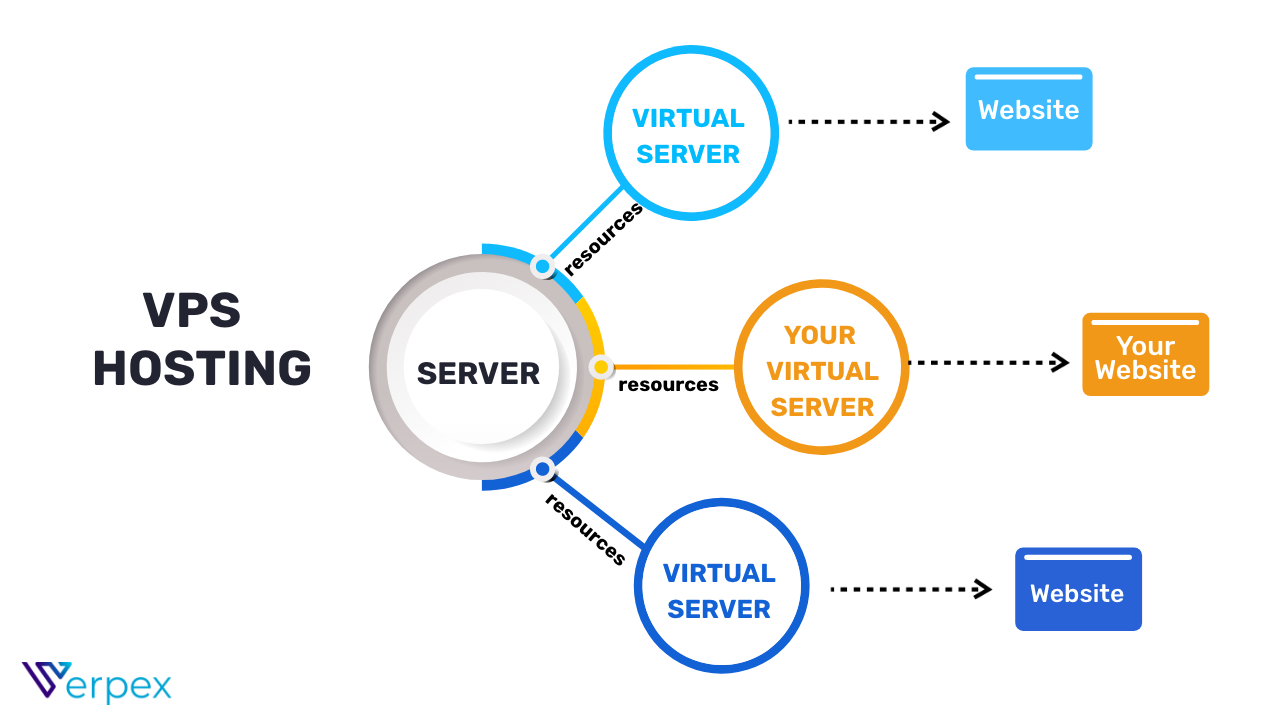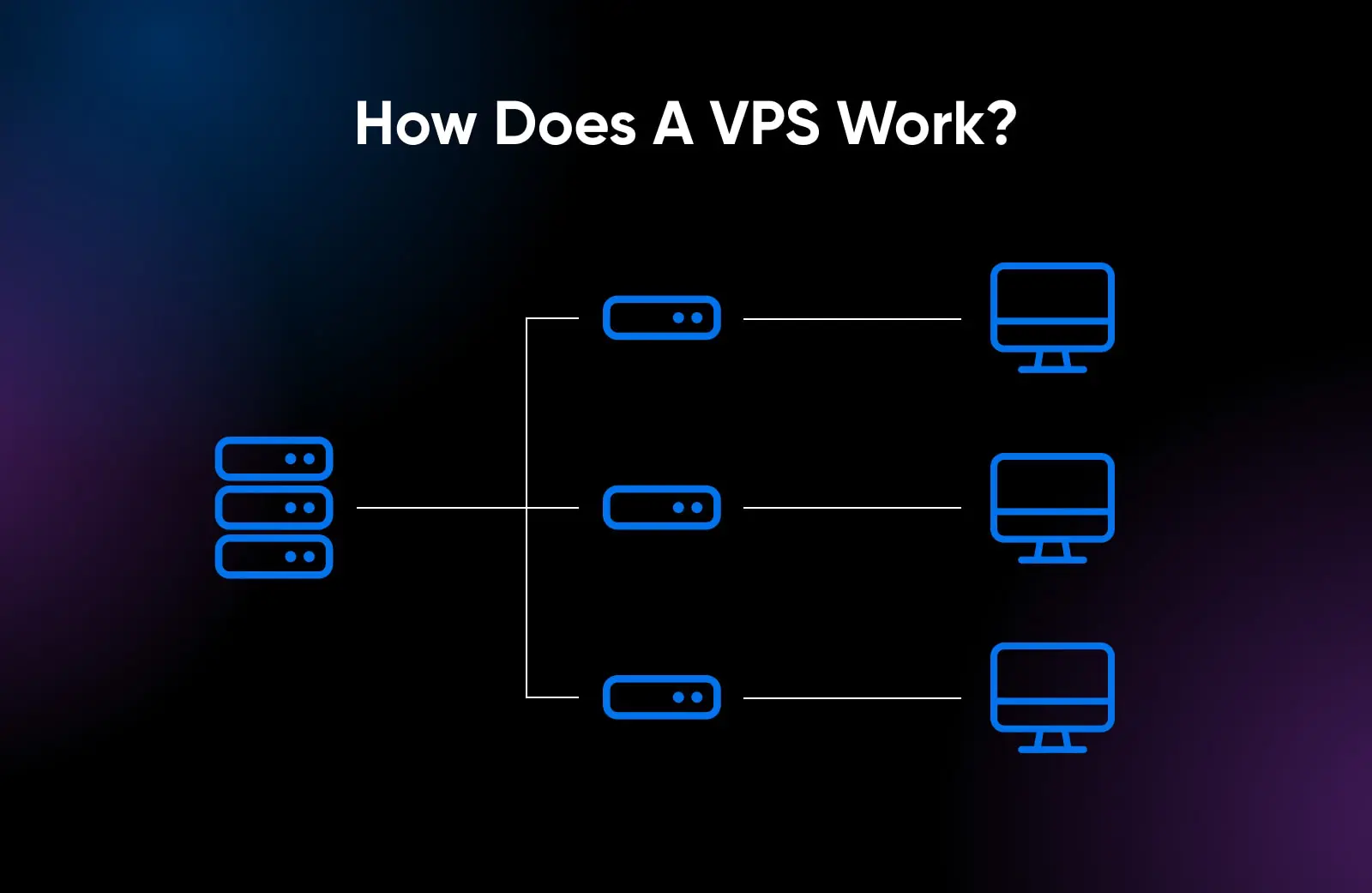1. What is VPS Hosting?
VPS hosting, or Virtual Private Server hosting, is a type of web hosting that provides users with a dedicated portion of a server while sharing the physical hardware with other users. Unlike shared hosting, where resources are distributed among multiple accounts without clear separation, a VPS creates isolated environments for each user, mimicking the experience of a dedicated server but at a lower cost.
VPS hosting is particularly beneficial for businesses, developers, and website owners who need more power, flexibility, and security than shared hosting can provide. It is often chosen by growing websites that have outgrown their shared hosting plans but do not yet require the full capacity of a dedicated server.

2. How VPS Hosting Works
VPS hosting operates using virtualization technology, which partitions a single physical server into multiple virtual environments. Each VPS functions independently, with its own operating system (OS), storage, bandwidth, and allocated CPU and RAM resources.
This isolation ensures that activities on one VPS do not affect others, making it a more stable and secure option than shared hosting. It also allows users to install custom software, configure server settings, and manage applications without interference from other users on the same physical machine.
Additionally, VPS hosting can be either managed or unmanaged:
- Managed VPS: The hosting provider takes care of server maintenance, security updates, and performance optimization.
- Unmanaged VPS: The user is responsible for managing server configurations, security patches, and software installations.

3. Key Benefits of VPS Hosting
VPS hosting offers a range of benefits that make it a popular choice for businesses and developers.
1. Enhanced Performance
Since VPS hosting allocates dedicated resources to each user, websites and applications run smoothly without being affected by the traffic spikes or performance issues of other users on the same server.
2. Greater Control and Customization
Unlike shared hosting, VPS users have root access to their server, allowing them to install custom software, configure settings, and optimize performance according to their needs.
3. Improved Security
Each VPS is isolated from others, reducing the risk of cyber threats, malware infections, or security breaches affecting multiple accounts on the server.
4. Scalability
As businesses grow, their hosting needs increase. VPS hosting allows easy scalability, enabling users to upgrade RAM, CPU, and storage as needed without migrating to a different hosting environment.
5. Cost-Effective Solution
VPS hosting provides many advantages of a dedicated server at a fraction of the cost, making it an excellent choice for medium-sized businesses and resource-intensive applications.

4. Comparing VPS Hosting to Shared and Dedicated Hosting
Understanding the differences between VPS, shared, and dedicated hosting can help users make an informed decision.
| Feature | Shared Hosting | VPS Hosting | Dedicated Hosting |
|---|---|---|---|
| Cost | Low | Moderate | High |
| Performance | Limited | High | Very High |
| Security | Basic | Enhanced | Maximum |
| Customization | Limited | Full Control | Full Control |
| Scalability | Limited | Flexible | High |
VPS hosting is best suited for businesses that need more resources and security than shared hosting can provide but do not yet require the expense of a dedicated server.

5. Choosing the Right VPS Hosting Provider
Selecting the right VPS hosting provider is crucial for ensuring optimal performance and reliability. Here are key factors to consider:
1. Performance and Uptime Guarantees
Look for a provider that offers at least 99.9% uptime and high-performance servers with SSD storage and powerful CPUs.
2. Security Features
A good VPS provider should offer firewall protection, regular backups, DDoS protection, and SSL certificates to keep your data secure.
3. Customer Support
24/7 customer support via live chat, phone, and email is essential, especially for users opting for unmanaged VPS plans.
4. Scalability Options
Ensure that the provider allows easy upgrades to accommodate future growth without downtime or data migration issues.
5. Pricing and Plans
Compare pricing, contract terms, and additional costs for managed services, backups, and premium support to get the best value for your needs.
Popular VPS hosting providers include DigitalOcean, Linode, Vultr, AWS Lightsail, and Bluehost.



You must be logged in to post a comment.